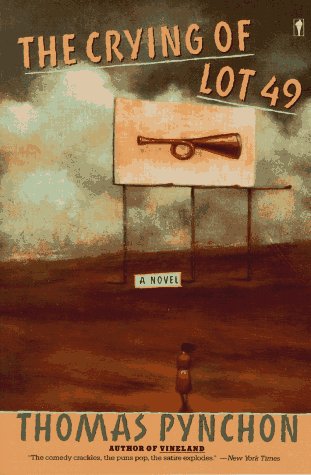Oedipa Maas, the protagonist of this Thomas Pynchon novel, lives in a world full of haphazard clues, dead ends, and meaningless signifiers. She stumbles through a bizarre string of coincidences to try to unravel what may or may not be a mystery. She cannot quite realize her condition."...they'll call it paranoia.... Or you are hallucinating it. Or a plot has been mounted against you.... Or you are fantasying some such plot, in which case you are a nut, Oedipa, out of your skull."1Oedipa struggles to draw meaning out of chaotic masses of information, and to construct a narrative out of randomness. In doing so, she begins to lose sense of her world. She considers two possibilities: "Another mode of meaning behind the obvious or none."2She suspects there may be more to life, that there may be something signified after all, but, if there is, it is continually deferred. We leave Oedipa waiting.Oedipa,pite her lack of success, is driven towards discovery. She chases a transcendental meaning the existence of which she cannot be certain, but she pursues. Without pursuit, there is waiting. Hers is an America of drifters and squatters, ones and zeroes, speeding electricity and dead railroad cars, and the search for "the trigger for the unnamable act, the recognition, the Word."3 Waiting, moving...




